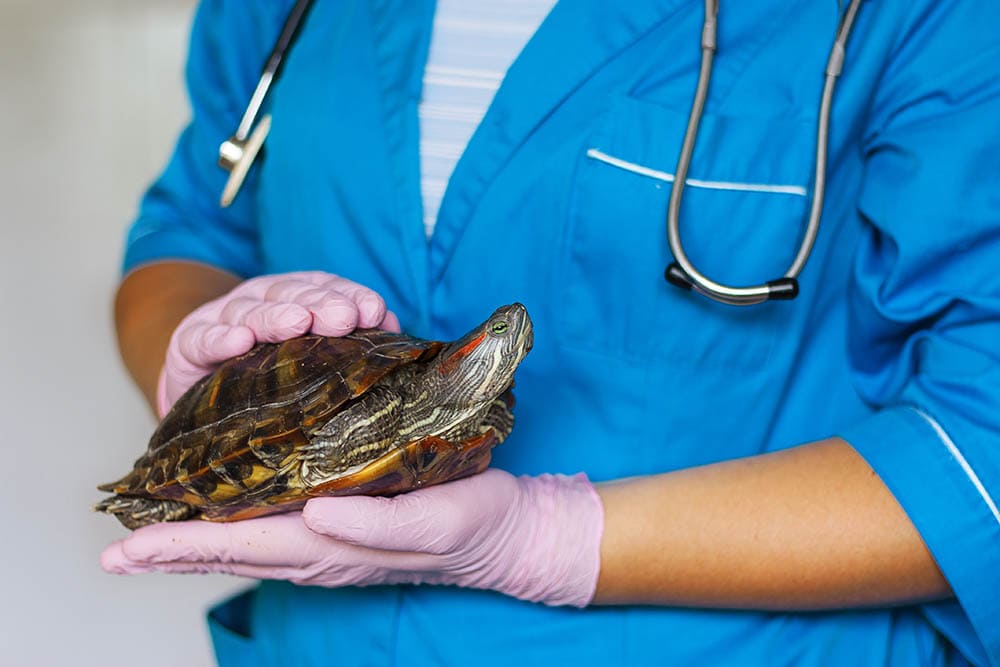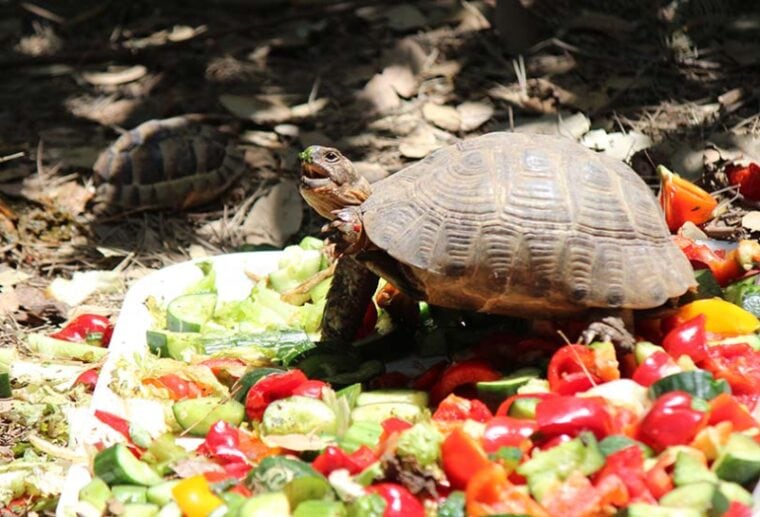
Figuring out what a new pet can eat can be tricky because you want them to enjoy what they’re eating and make sure it’s healthy and, most importantly, not harmful. This is particularly true for an exotic pet like a tortoise. Thankfully, there are many vegetables that you can buy from the supermarket or even grow in your garden that you can both enjoy! Let’s look at which veggies your tortoise can eat, and we’ll also take a quick look at the ones you should avoid. But before we do, we need to know a little more about what tortoise species we are dealing with, so we know if they need to eat vegetables at all.
Mediterranean or Tropical?
Before you start planting out your tortoise veggie patch, it is worth knowing how much veg your shelled friend will need to consume, if any. What we feed our pets should reflect the sort of diet they would be eating in the wild, because that is what their digestive system is adapted to.
If your tortoise hails from arid, Mediterranean areas, its digestive system will be geared towards a diet of more fibrous plant matter, like the roots and stems. They will also enjoy succulent plants if they can find them.These species are not well adapted to eating “chunky” or fleshy vegetables, but they can still be offered in small portions as a treat or for a bit of variety. They will, however, benefit from a selection of leafy greens. These species include:
Tortoise species from more Tropical, forested regions will often be eating a more varied diet, including berries and vegetable matter found in the forest. For these species, a wider variety of vegetables will be beneficial, and appreciated! Some of the tropical tortoise species kept as pets are:
Without further ado, let’s take a look at what vegetables are safe to offer our shelled companions, being aware that some of the items on this list refer to the LEAVES of the plant, and not the vegetable itself.
The 16 Vegetables That Tortoises Can Eat
1. Beans
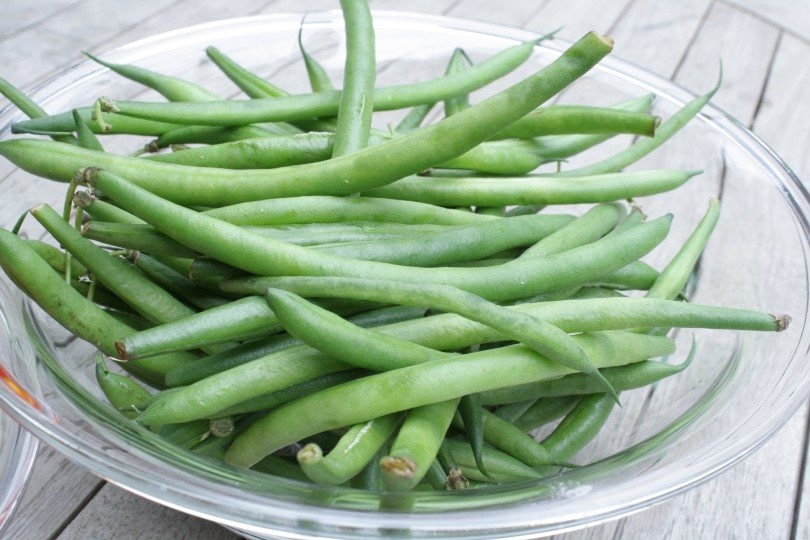
This includes the green, French, string, and runner beans, but you should feed them in moderation. Do not feed the beans or pods of the French or runner beans; they are both high in protein and toxic. Instead, feed them the young leaves.
You can also feed the broad bean leaves to your tortoise, but this should be done sparingly as too many in their diet can result in mineral deficiencies.
2. Beetroot greens
You can feed beetroot leaves and flowers sparingly because, while they aren’t toxic, they do contain high levels of oxalic acid; this is harmful to your tortoise because it binds with calcium to form calcium oxalate, which affects your tortoise’s ability to absorb and utilize calcium.
Avoid giving your tortoise the root, and make sure they’re well hydrated before eating beetroot.
3. Broccoli
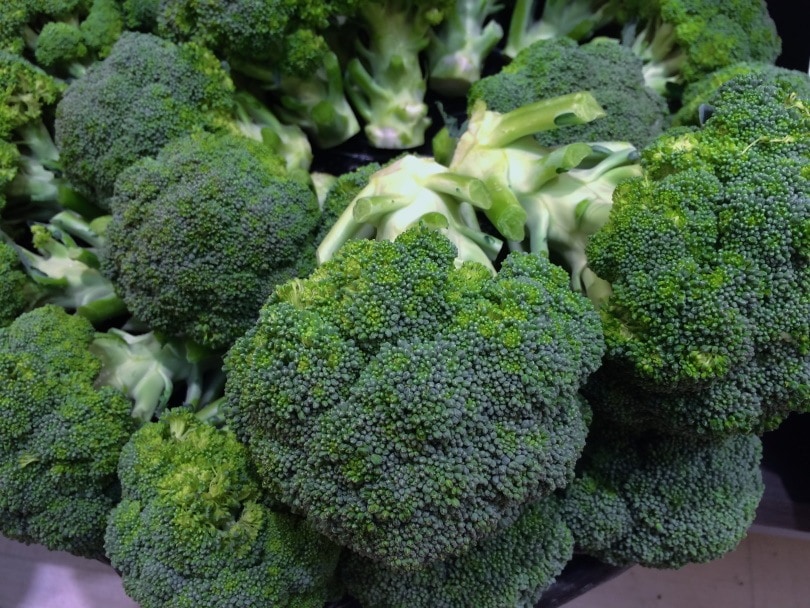
Broccoli can be enjoyed in moderation, but be aware that it contains goitrogens, which affect a tortoise’s thyroid; they can also affect a human’s thyroid health if too much is ingested.
Goitrogens affect how the body absorbs iodine and contributes to bladder and kidney stones, which might make you think you should avoid vegetables that contain it. However, your tortoise should be fine if you don’t feed them too much.
It’s important to note that feeding your tortoise two or more goitrogenic vegetables can be harmful, so familiarize yourself with the plants containing goitrogens.
4. Brussels Sprouts
You can offer your tortoise Brussels sprouts in moderation. This is another example of a goitrogenic vegetable. However, Brussels sprouts are a fantastic source of iodine.
5. Carrots
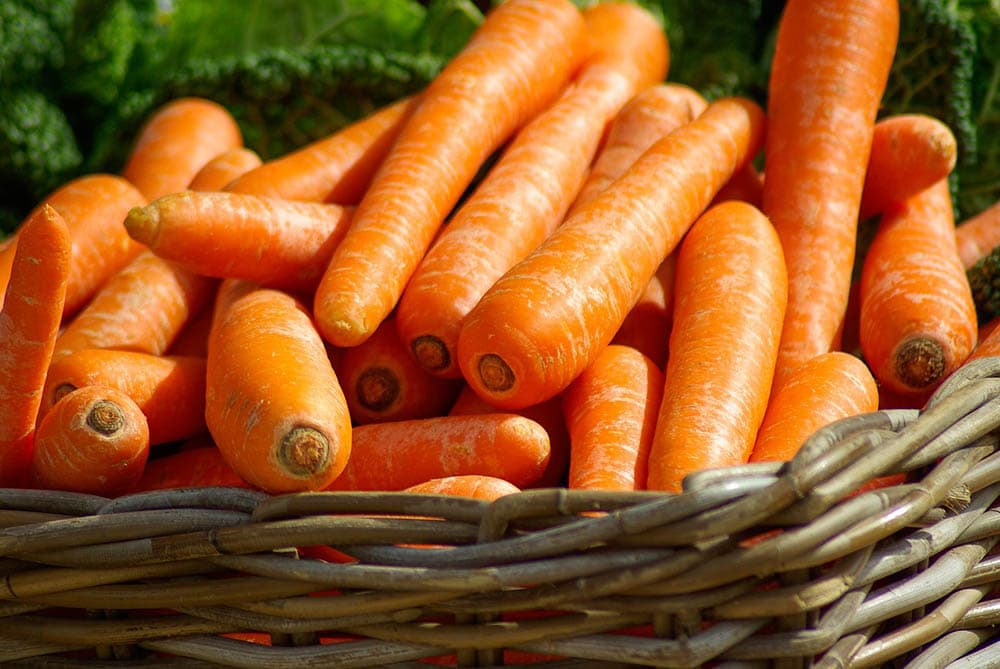
Carrots are rich in potassium and protein and contain oxalic acid, so they should be sparingly fed to your tortoise. It’s been rumored to be used as a natural wormer, but there is no evidence to support this. A good way to serve it is to grate it for a natural vitamin A boost to your tortoise’s diet.
6. Swiss Chard
Your tortoise can eat Swiss chard, but it’s high in oxalic acid, so make sure they are well hydrated and only offer it to them sparingly.
7. Chayote
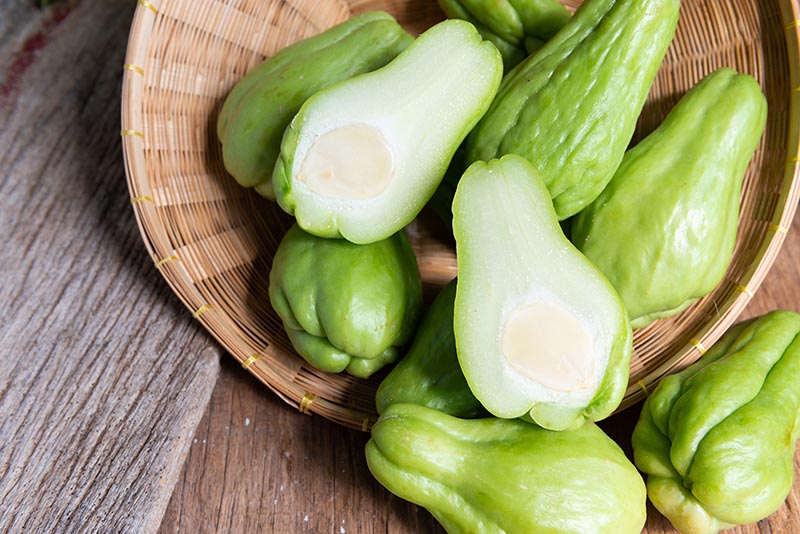
Chayote roots are tuberous, so you should avoid offering them to your tortoise, but they can eat the flowers and leaves sparingly.
8. Chinese Cabbage
Chinese cabbage is another example of a vegetable that contains goitrogens, so offer it in moderation to your tortoise and as part of a varied diet.
9. Cucumber
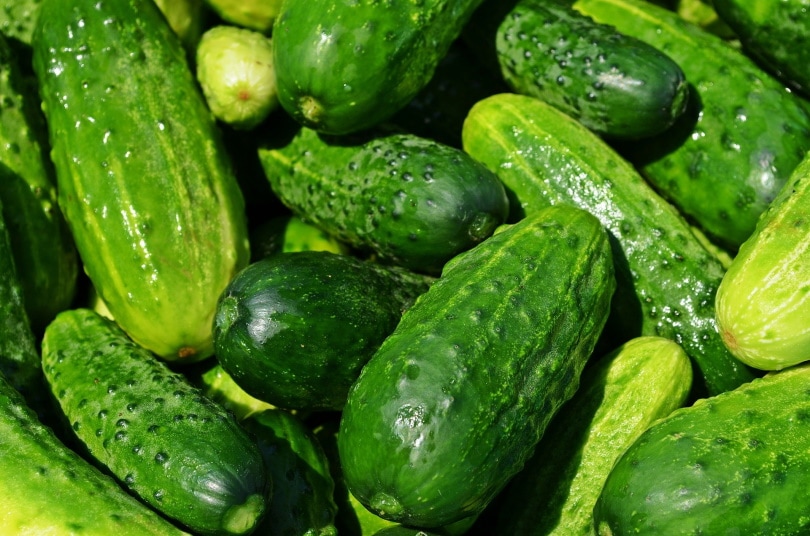
Cucumbers have more in common with watermelons than vegetables, so it won’t be surprising to discover that they’re fruit. However, they’ve made it onto our list because we eat them like vegetables. You can feed your tortoise cucumbers in moderation; they are 96% water, and the other 4% is made up mostly of dietary fiber.
You can feed cucumber pieces to your tortoise to help hydrate them, and they’re also perfect if you need to hide medication.
10. Endive
Endive or chicory can sometimes taste bitter, so not all tortoises will like it. However, if yours does, they can enjoy it in moderation as part of a varied diet.
11. Globe Artichoke

The globe artichoke is completely safe to feed your tortoise as there are no known hazards. However, it’s best to chop the artichoke heart into small pieces to make it easier for your tortoise to digest.
12. Jerusalem Artichoke
This plant is part of the Sunflower family and is not toxic itself. However, it should still only be offered in moderation because it can accrue nitrates from the soil, which can harm your tortoise. Avoid the tubers and feed your tortoise the flowers or leaves.
13. Kale
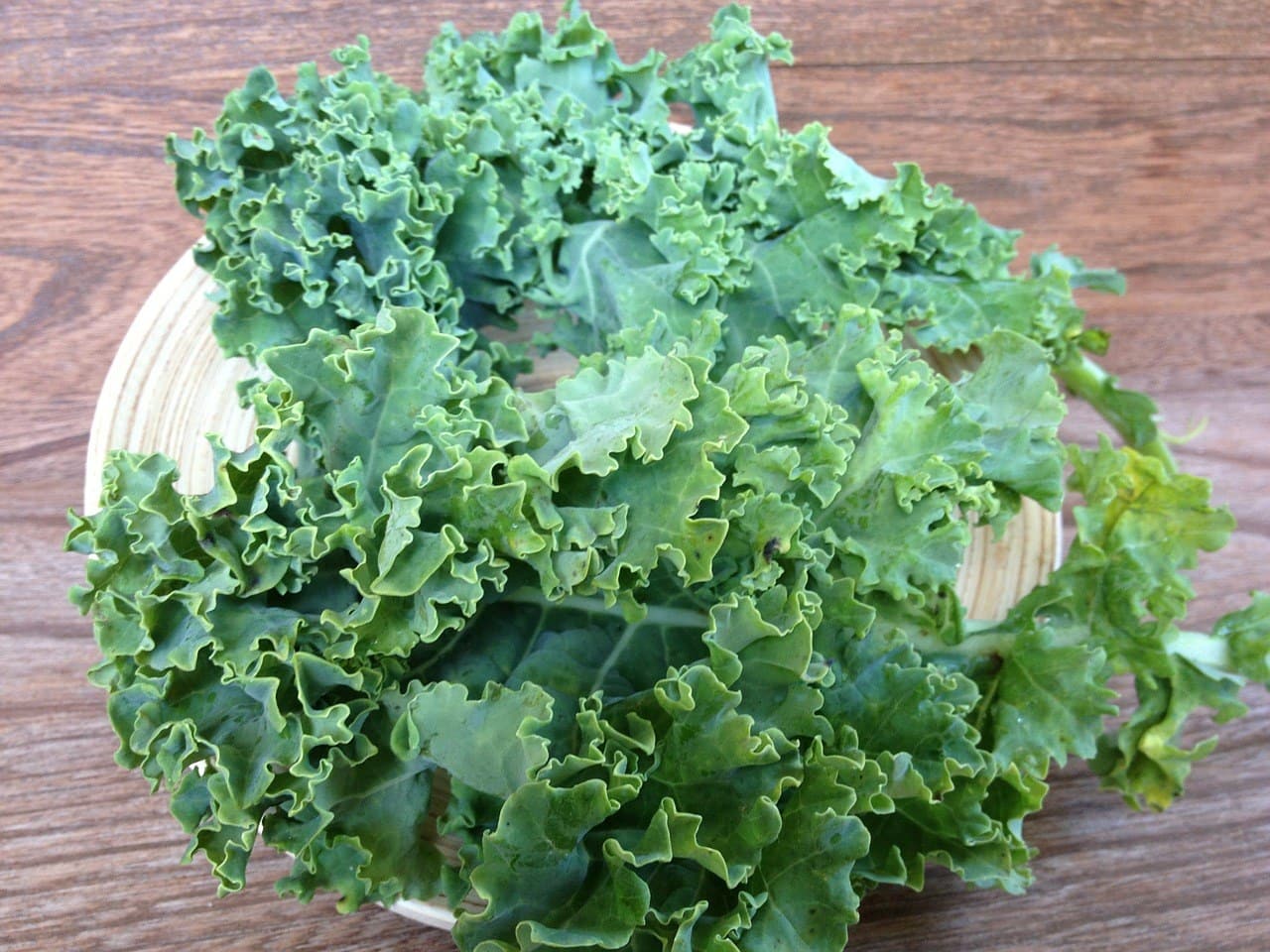
Kale should be served only occasionally; it contains a high calcium content and oxalic acid. It is also a goitrogenic vegetable, but like Brussels sprouts, it has a high iodine content, so your tortoise can still enjoy it.
14. Lettuce
Lettuce is an excellent option for your tortoise. Different variations of lettuce, like lamb’s or iceberg, are not very nutritious, so stick to varieties like romaine or green leaf lettuce. They are a nice snack on warm summer days since they contain a large percentage of moisture.
15. Radish greens

You can feed your tortoise radish leaves in moderation because they contain goitrogenic glycosides, which can cause liver and kidney damage if fed in large quantities. Avoid radish root as it is very high in carbohydrates and glucosinolates.
16. Zucchini
Zucchini is technically a fruit but is generally treated like a vegetable. Your tortoise can eat the fruit and leaves in moderation.
People Also Ask
What Vegetables Should You Not Feed Your Tortoise?
It’s a good idea to know which vegetables to stay away from. Some are toxic, while others might lead to health problems that affect your tortoise’s quality of life or lifespan. This doesn’t stop you from growing these vegetables yourself, but make sure your tortoise can’t get to them.
Vegetables to keep away from your tortoise include, but aren’t limited to:
If you suspect that your tortoise has eaten something that they shouldn’t, take them to the veterinarian immediately.
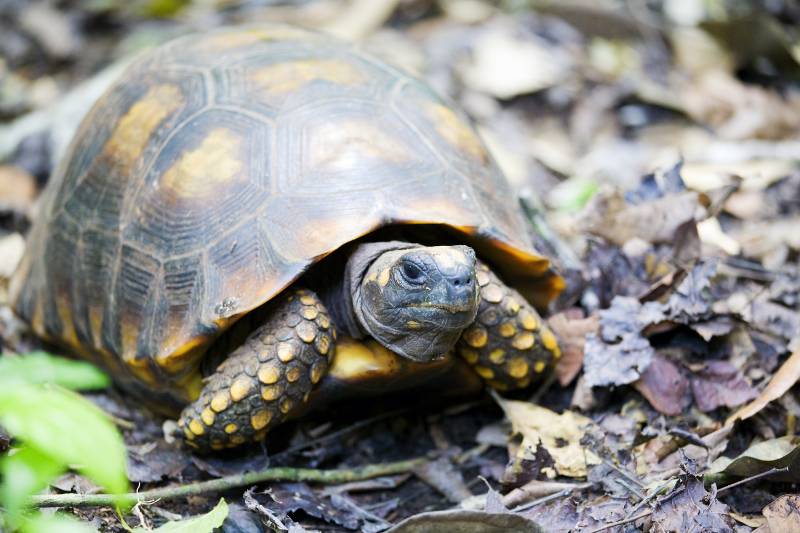
Will a Tortoise Eat Something They Shouldn’t?
Tortoises don’t always know what they should and shouldn’t eat, so it’s possible they could eat something potentially harmful. Depending on what they have eaten, they might show signs to indicate they’ve ingested something toxic, such as:
If you notice these signs or suspect they’ve eaten harmful, get them to the vet as soon as possible.
Conclusion
There are many vegetables that a tortoise can enjoy, but with many of them, you need to watch how much they eat. In some cases, too much can cause health problems that could result in a trip to the vet. It’s vital to ensure that your tortoise enjoys these vegetables as part of a varied and nutritious diet and keep toxic and harmful vegetables out of their way!
Featured Image Credit: Maya Shustov, Shutterstock




